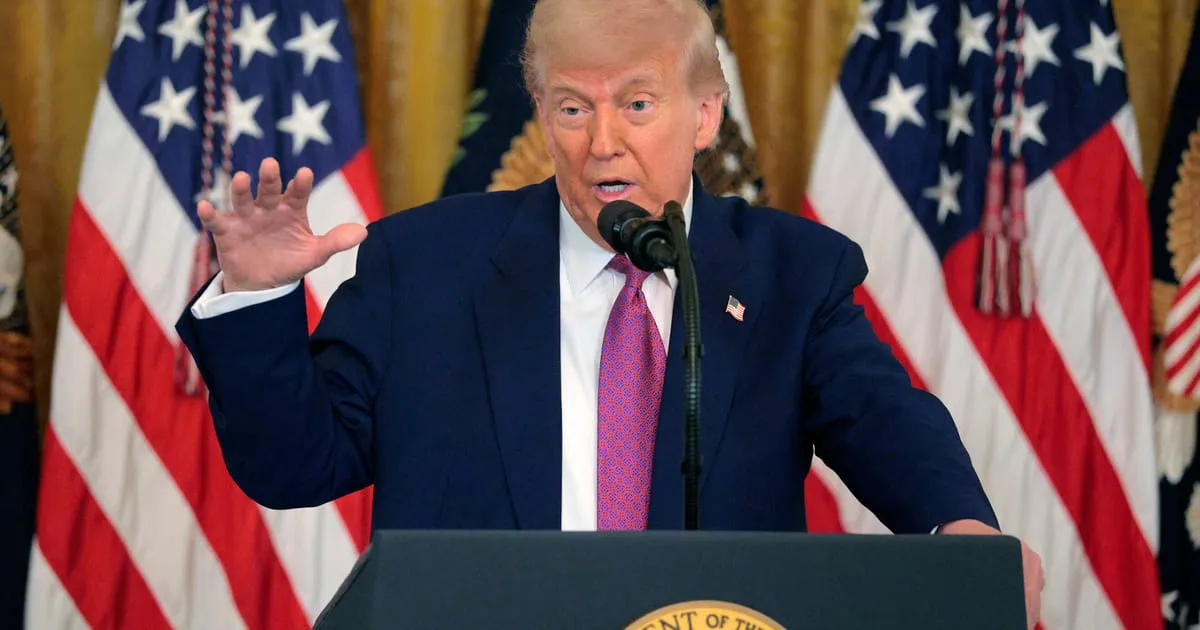
In a dramatic escalation of tensions, President Donald Trump has declared that the United States will retaliate “at levels never seen before” should Iran launch any attacks against American interests. This statement comes in the wake of recent military actions that have further strained relations in the region.
On Thursday night, Israel, a key ally of the United States, conducted airstrikes targeting critical nuclear facilities, high-ranking regime officials, military leaders, and prominent nuclear scientists in Iran. These strikes represent a significant escalation in the ongoing conflict, leading to a rapid deterioration of stability in the Middle East.
In retaliation, Iran has launched missile strikes; however, there has been no indication that these attacks have specifically targeted American forces thus far. The conflict has tragically resulted in civilian casualties, with missile strikes claiming the lives of individuals, including innocent bystanders, in both Iran and Israel over the weekend.
Amidst the chaos, the Israeli Defense Forces (IDF) issued an urgent call on Sunday morning for Iranian civilians residing near weapons production facilities to evacuate the area. This warning highlights the escalating nature of the conflict and the potential for further violence.
In a statement early Sunday, President Trump clarified, “The U.S. had nothing to do with the attack on Iran, tonight.” He emphasized that any attack on the United States would trigger a decisive and overwhelming response: “If we are attacked in any way, shape or form by Iran, the full strength and might of the U.S. Armed Forces will come down on you at levels never seen before.”
Despite the escalating conflict, Trump expressed optimism about the potential for a diplomatic resolution, stating, “However, we can easily get a deal done between Iran and Israel, and end this bloody conflict!!!” This statement reflects an ongoing hope for negotiations amidst rising tensions.
Plans for talks between the U.S. and Iran, scheduled for today, have been canceled, as confirmed by Omani Foreign Minister Badr Albusaidi via an X post. Washington has been engaged in discussions with Tehran to negotiate terms regarding Iran’s nuclear program in exchange for lifting sanctions. A recent report from a United Nations watchdog indicated that Iran has been increasing its stockpiles of near weapons-grade uranium, raising alarms over potential nuclear proliferation.
The sharp escalation of military actions has ignited fears of renewed instability in the region, prompting international leaders to advocate for restraint and a resumption of diplomatic negotiations. In a statement shortly after the IDF evacuation call, Israeli Defense Minister Israel Katz vowed that Israel “will strike the sites and continue to peel the skin off the Iranian snake in Tehran and everywhere, stripping it of nuclear capabilities and weapons systems.”
As the violence continues, casualty reports have emerged, with Israel’s Magen David Adom rescue service confirming that 13 individuals have died, as reported by the Associated Press. Meanwhile, Iran’s U.N. ambassador, Amir Saeid Iravani, reported that 78 people have lost their lives and over 320 have sustained injuries in Iran, according to the Wall Street Journal. Furthermore, Iranian Foreign Ministry spokesperson Esmaeil Baqaei condemned the Israeli strikes on residential areas, highlighting the humanitarian impact of the ongoing conflict, as reported by Iran’s state-run Islamic Republic News Agency.